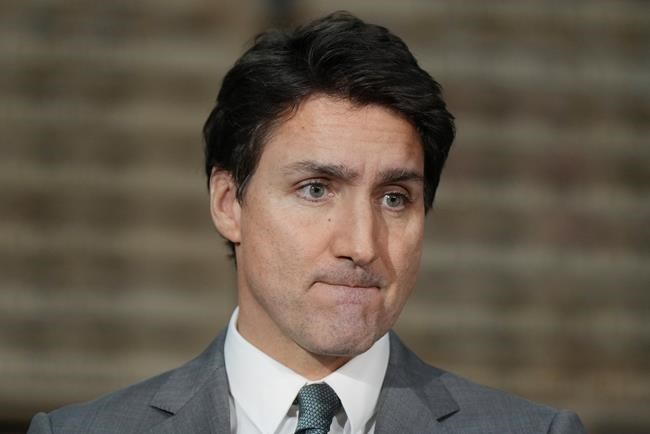OTTAWA — Almost two in three Canadians have a negative impression of Prime Minister Justin Trudeau and half want him to resign before the next election, a new survey suggests.
While affordability, housing and public debt are higher on the reasons people want Trudeau to go, one in five people surveyed said they want him to resign simply because they are "just tired of him."
The Leger poll for The Canadian Press suggests widespread dissatisfaction with the Liberal government on everything from housing affordability and inflation to health care, government spending and climate change.
It was taken online in Canada over three days last weekend, with 1,612 people responding. While the results were statistically weighted it cannot be assigned a margin of error because online polls are not considered truly random samples.
It comes after months of unfavourable poll numbers for Trudeau and the Liberals who have just passed the eighth anniversary of their 2015 election win.
Nationally, 30 per cent of respondents said they were satisfied with Trudeau's government, while 63 per cent said they were not.
Trudeau trails Conservative Leader Pierre Poilievre on who would be the best prime minister by a wide margin, with 27 per cent of those surveyed backing Poilievre versus 17 per cent for Trudeau.
Similar numbers of people said they had a positive impression of both Poilievre — 35 per cent — and Trudeau — 33 per cent. But 61 per cent said they had a negative impression of Trudeau versus 45 per cent who had a negative impression of Poilievre.
Poilievre, an MP for almost 20 years and Conservative leader for a little more than a year, is still an unknown to some Canadians. One in five of those surveyed said they did not know if they had a positive or negative impression of him.
For NDP Leader Jagmeet Singh, 43 per cent have a positive view, and 41 per cent a negative view, but only 16 per cent said he would make the best prime minister.
More than four in five respondents said they were not satisfied with Trudeau's handling of affordable housing, and three in four were dissatisfied with the Liberals' handling of inflation and the affordability crisis in general.
Almost three in five aren't happy with the government's handling of climate change, two in three are dissatisfied with its management of public finances, and more than half dislike how the Liberals are handling Canada's relationship with China and with India.
Half of Canadians surveyed said Trudeau should resign before the next election. One in four of those who identified as Liberal voters said he should quit. Only 28 per cent of all respondents said he should stay on.
Almost three in four said it's time for a new prime minister because Trudeau's been in office too long, while two-thirds said they don't think he has a clear vision for the future.
A new Liberal leader would affect the vote for more than one-third of respondents who said they voted Liberal in the past but won't do so with Trudeau at the helm. Ten per cent said they'd be highly likely to return to the Liberals with a new leader in place, and 29 per cent said they very likely would. However 61 per cent don't see a new leader making any difference in their decision.
More than one in four NDP supporters said they'd likely change their vote to Liberal to try to block the Conservatives from winning.
This report by The Canadian Press was first published Nov. 15, 2023.
Mia Rabson, The Canadian Press



